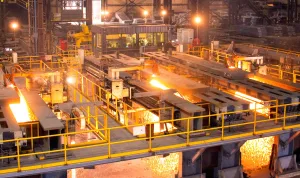What If Chinese Steel Industries Stop Exporting? Analyzing the Global Impact

The global steel market is heavily influenced by China, the world’s largest steel producer and exporter. Any disruption in Chinese steel exports could have profound implications for global economies and industries. This article explores the potential consequences if Chinese steel industries were to cease exporting, examining the ripple effects on global supply chains, prices, and economies.
1. The Dominance of Chinese Steel in the Global Market
a. China’s Production Capacity:
- China produces over half of the world’s steel, with an annual output exceeding 1 billion metric tons. This vast production capacity allows China to be a key player in the global steel market.
b. Export Statistics:
- In recent years, China has exported around 60-70 million metric tons of steel annually, supplying markets in Asia, Europe, and the Americas. These exports are crucial for meeting global demand and stabilizing prices.
2. Immediate Impact on Global Steel Prices
a. Supply Shortage:
- If Chinese steel exports were to stop, the immediate effect would be a significant supply shortage in the global market. Countries heavily reliant on Chinese steel would struggle to find alternative sources.
b. Price Surge:
- The reduction in supply would lead to a sharp increase in global steel prices. Industries dependent on steel, such as construction, automotive, and manufacturing, would face higher production costs, potentially leading to increased prices for consumers.
3. Regional Impacts and Responses
a. Asia:
- Countries in Asia, particularly those with burgeoning construction and infrastructure projects like India, Vietnam, and Indonesia, would be severely affected. These nations might seek to ramp up their own steel production, but this would take time and investment.
b. Europe:
- European countries, which import substantial amounts of Chinese steel, would experience disruptions in their industrial supply chains. This could lead to delays in construction projects and increased costs for manufacturing.
c. North America:
- The United States and Canada would also feel the impact, although their diversified supply chains and domestic production capacities might cushion the blow somewhat. However, industries dependent on imported steel would still face price hikes and potential shortages.
4. Strategic Shifts and Opportunities
a. Boost in Domestic Production:
- Countries might accelerate investments in domestic steel production to reduce dependency on imports. This could lead to the development of new steel plants and technological advancements in steel manufacturing.
b. Trade Realignments:
- The halt in Chinese steel exports could prompt realignments in global trade, with countries seeking new trading partners. Nations like Russia, Japan, and South Korea could increase their export volumes to fill the gap left by China.
c. Innovation and Sustainability:
- The disruption could drive innovation in the steel industry, focusing on sustainable and efficient production methods. Green steel, produced with reduced carbon emissions, might gain traction as countries look for environmentally friendly alternatives.
5. Economic and Geopolitical Consequences
a. Economic Slowdown:
- Industries reliant on steel could experience slowdowns due to increased costs and supply chain disruptions. This could lead to broader economic challenges, including job losses and reduced economic growth.
b. Geopolitical Tensions:
- The cessation of Chinese steel exports could heighten geopolitical tensions, especially if countries perceive the move as a strategic maneuver. Trade negotiations and diplomatic relations might become strained as nations seek to secure their steel supplies.
Conclusion
The hypothetical scenario of Chinese steel industries stopping exports would send shockwaves through the global economy. From surging prices and supply shortages to strategic shifts in production and trade, the impacts would be far-reaching. As the world’s largest steel producer, China plays a pivotal role in the stability and functionality of global steel markets. Understanding these potential consequences underscores the importance of diversification and resilience in global supply chains.



